What is Gottman Therapy?
Gottman Therapy, also known as The Gottman Method of Marital Therapy, Gottman Method Couples Therapy, and The Gottman Method of Marital Therapy is a form of couples-based therapy and education that draws on the pioneering studies of relationships by psychologist John M. Gottman, and the clinical practice conducted by his wife, psychologist Julie Gottman.
This approach to couples therapy strives to assist couples in achieving a deeper sense of understanding, awareness, empathy, and connectedness within their relationships that ultimately leads to heightened intimacy and interpersonal growth.
Is Gottman Therapy evidence-based?
Gottman Therapy is based on nearly 40 years of research conducted to identify the elements it takes for relationships to last among all types of couples and across all phases of life.
Is the Gottman Method of couples therapy successful?
Dr. Gottman s findings show that the majority of conflicts in relationships cannot be resolved without therapy because they are perpetual. Many studies have been conducted that show that the Gottman Method is effective in helping couples move past their perpetual issues and enjoy their relationship again. This proven method has helped thousands of couples have the relationships that they desire.
Who created Gottman Couples Therapy?
The Gottman Method was developed by husband and wife psychologists Dr. John Gottman and Dr. Julie Schwartz Gottman, and is based on their pioneering study of relationships.
How Gottman Therapy Works
The philosophy of Gottman Therapy
Dr. John Gottman was initially drawn to this research topic due to his own curiosity about how people develop happy relationships. His studies led him to identify four key relationship difficulties that often led to divorce:
1. Criticism of your partner
2. Defensiveness about your role
3. Stonewalling or withdrawing
4. Contempt for your partner
The techniques and phases involved in Gottman Therapy
The Gottman Method Couples Therapy Assessment is called the Sound Relationship House theory. The theory identifies seven “floors” that a couple can move through to improve their relationship, along with two “weight-bearing walls,” which are essential to holding the couple together. The seven Gottman Couples Therapy Techniques:
- Build love maps: This is the first floor of the Sound Relationship House and involves couples getting to know one another’s inner psychological worlds.
- Share fondness and admiration: On this floor, couples learn to overtly express appreciation and respect for each other to strengthen their bond.
- Turn towards, not away: This floor involves learning to notice when your partner is seeking attention, affection, and comfort and responding accordingly.
- The positive perspective: This floor helps partners learn to see each other positively, enabling them to see errors as matters of circumstance, not failures of the individual.
- Manage conflict: On this floor, couples learn to manage conflict through a three-step process. First, partners take each other’s feelings into account. Next, partners learn to discuss their problems. Finally, when a partner starts to feel overwhelmed during conflict, they learn techniques to self-soothe to keep their cool.
- Make life dreams come true: The second to last floor centers on supporting and championing your partner in their dreams and goals.
- Create shared meaning: The top floor mirrors the first floor in that it involves understanding an inner world, but in this case, it entails uncovering the rituals and stories that have shared meaning for them.
- Trust and commitment: The two weight-bearing walls of the Sound Relationship House help couples work through the seven floors. Trust enables couples to believe they can rely on one another and feel like they’re a team, and commitment means couples have agreed to stick together and improve their relationship.
The Goals of Gottman Therapy
The goals of Gottman Method Couples Therapy are to disarm conflicting verbal communication; increase intimacy, respect, and affection; remove barriers that create a feeling of stagnancy; and create a heightened sense of empathy and understanding that will ultimately strengthen the relationship.
What to Expect in Gottman Couples Therapy
How long does Gottman Method Therapy take?
The Gottman Method is typically done in 90 minutes weekly sessions, and the length of therapy will be determined by your specific needs and goals. In the later stage of therapy, couples meet less frequently in order to test their new relationship skills and to prepare for termination of the therapy. You may terminate therapy whenever you wish, but it is most helpful to have at least one session together to summarize your progress. In the outcome-evaluation phase there can also be follow-up sessions every six months for up to two years.
What it is like to be in Gottman Couples Therapy?
The Gottman Method can be rigorous and intense, and therapists expect couples to continue to use the skills they learn in therapy outside of sessions.
Where to start with Gottman Therapy
Gottman Therapy begins with finding a therapist trained in the Gottman Method and undergoing an assessment. Using research-based algorithms, this assessment will generate unique summary reports for the clinician and the couple. The assessment focuses on the key conditions and behaviors that lead relationships to succeed or fail.
Can Gottman Therapy be done online?
Yes, Gottman method couples therapy can be done online, and the process will be the same as participating in person, with an assessment, therapeutic framework, and therapeutic interventions.
Who Benefits From Gottman Therapy?
The Gottman Method can help with a wide array of relationship issues, from frequent arguing to infidelity and emotional distance, which may seem unique but at their core are often the result of perpetual conflicts. The Gottman Method can also help couples who don’t feel their level of conflict is problematic but are looking to understand their relationship better. This kind of therapy is designed to help people at any stage of their relationship, regardless of race, class, or cultural identity. Research has shown it is also effective for same-sex couples.
